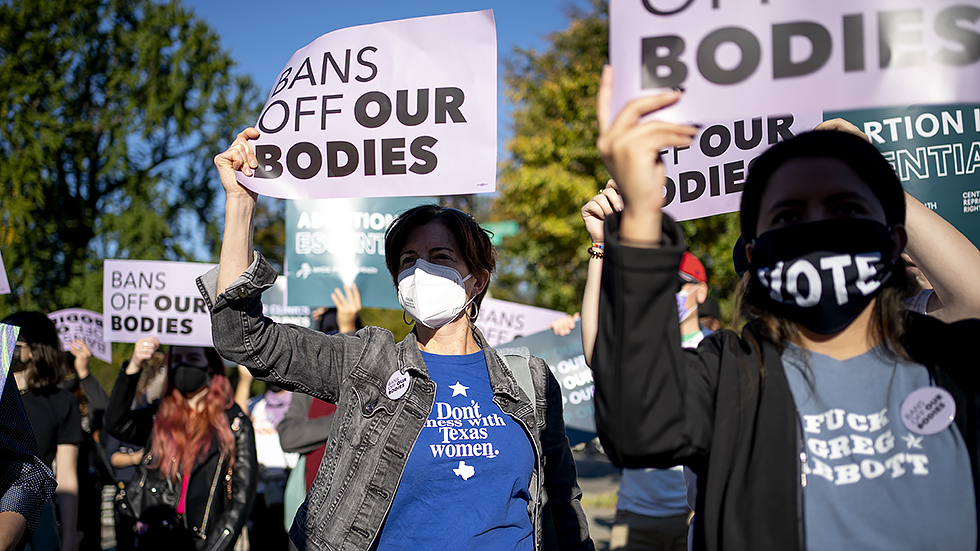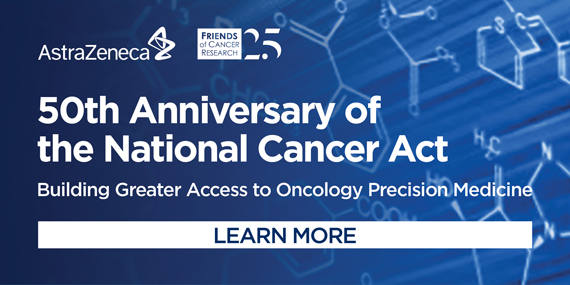Overnight Health Care — Presented by AstraZeneca and Friends of Cancer Research — Court leaves Texas abortion ban, allows suits

Welcome to Friday’s Overnight Health Care, where we’re following the latest moves on policy and news affecting your health. Subscribe here: digital-stage.thehill.com/newsletter-signup.
The U.S. and much of the world was unprepared for how bad the coronavirus pandemic was. The next one could be worse, and nations don’t seem to be learning their lessons.
The Supreme Court let the Texas abortion law stay in place, at least temporarily, in a move that has abortion rights advocates pessimistic about the future. But SCOTUS also gave abortion providers the right to file lawsuits challenging the law.
For The Hill, we’re Peter Sullivan (psullivan@digital-stage.thehill.com), Nathaniel Weixel (nweixel@digital-stage.thehill.com) and Justine Coleman (jcoleman@digital-stage.thehill.com). Write to us with tips and feedback, and follow us on Twitter: @PeterSullivan4, @NateWeixel and @JustineColeman8.
Let’s get started.
SCOTUS allows abortion providers to sue

The Supreme Court on Friday left in place a restrictive Texas law that bans abortion after six weeks of pregnancy, but provided a narrow path for abortion providers to pursue a federal lawsuit challenging the law.
The complex ruling did not deal directly with the ban’s legality. Rather, the justices determined that federal courts have the power to review their legal challenge against some of the named defendants.
In an 8-1 opinion by Justice Neil Gorsuch, the majority handed abortion providers a modest win whose practical impact was not immediately certain. Justice Clarence Thomas wrote separately that he would have dismissed the case.
The ruling will allow the providers to return to a district court judge who once ruled against the law, calling it unconstitutional. But legal experts and abortion advocates said the ruling had given Texas a roadmap for blocking future lawsuits.
“Once again, the Supreme Court has abandoned the people of Texas,” said Alexis McGill Johnson, president and CEO of Planned Parenthood Federation of America said. Johnson accused the court of being “complicit in widespread chaos and harm to Texans” and “giving the green light for other states to circumvent the constitution through copycat laws.”
The majority’s ruling dismissed the abortion providers’ suits against Texas’s attorney general, as well as a number of state court judges and clerks and a private citizen. Gorsuch said it was a procedural ruling.
Legal challenges to the Texas law have been ensnared in thorny questions related to the law’s unique legislative design, which critics have likened to a “bounty” system.
What’s next: The court’s Friday decision brings the legal process back to square one, when the Supreme Court refused to step in and block the law on Sept. 1. It’s likely to return to the district court judge who initially blocked the law, whose ruling was then preempted by the conservative 5th circuit Court of Appeals.
CDC: MOST CASES OF OMICRON CONSIDERED MILD
The Centers for Disease Control and Prevention (CDC) detected 43 COVID-19 cases attributed to the omicron variant, nearly all of which were considered mild and discovered in the first week of December.
At least 22 states documented at least one COVID-19 case associated with the new variant of concern during the first eight days of December, according to data released by the CDC on Friday. Out of the 43 cases, the agency confirmed one hospitalization, which lasted two days, and zero deaths.
While the U.S. confirmed its first case of omicron last week in a California resident, the CDC said at least one patient who traveled internationally developed symptoms on Nov. 15. The timeline means the omicron strain was likely in the U.S. longer than initially thought, as the California patient first experienced symptoms on Nov. 25.
But the CDC researchers warned that “even if most infections are mild, a highly transmissible variant could result in enough cases to overwhelm health systems.”
Refresher: Almost 80 percent of the patients with an omicron strain had a full primary series of a COVID-19 vaccine. Fourteen had received an additional or booster dose, including five who got that extra dose less than 14 days after symptoms emerged.
Update: CDC Director Rochelle Walensky said during a Friday briefing that the omicron strain has been detected in half of the states.
A MESSAGE FROM ASTRAZENECA AND FRIENDS OF CANCER RESEARCH
The Battle Against Cancer: Setting the Next Agenda
To mark 50 years since the passage of the National Cancer Act of 1971, a select group of thought leaders working at the intersection of public health and oncology participated in a roundtable discussion, hosted by The Hill in partnership with Friends of Cancer Research and AstraZeneca’s YOUR Cancer Program, on expanding access to oncology precision medicine. Learn more.
NY to issue mask mandate for businesses

New York Gov. Kathy Hochul (D) announced Friday that the state will implement an indoor mask mandate for businesses that do not require vaccinations for customers and staff, citing rising COVID-19 cases and hospitalizations.
Starting Monday, all indoor businesses will have to either validate people’s vaccination status or mandate all people age 2 and older wear a mask.
The policy is slated to last until Jan. 15 when the state will “re-evaluate based on current conditions,” the governor said in a release, saying the measures are meant to get “through the holiday season.”
“We shouldn’t have reached the point where we are confronted with a winter surge, especially with the vaccine at our disposal, and I share many New Yorkers’ frustration that we are not past this pandemic yet,” she said.
Violations could cost businesses a maximum fine of $1,000 per infraction.
By the numbers: State officials pointed out that New York’s seven-day average case count has climbed 43 percent since Thanksgiving, approaching 10,000 per day, according to The New York Times. Hospitalizations are also rising at a rate of 29 percent, the state said.
While the state has seen a 2 percent increase in vaccinations since Thanksgiving weekend, officials concluded the boost is not enough to “completely curb the spread” of COVID-19.
PENTAGON CONSIDERING MANDATING VACCINE BOOSTER
Pentagon leaders are holding “active discussions” on whether to mandate a COVID-19 vaccine booster, the Defense Department’s top spokesperson confirmed Friday.
“There are active discussions here in the department at the policy level about booster shots and whether or not to make those mandatory,” press secretary John Kirby told reporters. “There have been no final decisions made about that.”
The Centers for Disease Control and Prevention recently updated its guidance to recommend booster doses for all adults in the days after the omicron variant of the virus was reported. The definition of “fully vaccinated” has not changed, though some state and local officials have been pushing to change the definition to include an additional dose.
The Pentagon has already mandated an initial round of vaccinations for the military, according to an Aug. 24 memo. But that requirement has been met with some pushback, most notably from Oklahoma Gov. Kevin Stitt (R), who has sued the department to prevent the mandate for National Guard members.
House Dems: drug price hikes ‘unjustified’

A scathing report from Democratic staff on the House Oversight Committee found drug companies deliberately targeted U.S. markets to raise prices and game the patent system to delay generic competition in a way that is “unsustainable, unjustified, and unfair to patients and taxpayers.
The investigation focused on 10 companies that sell 12 of the most expensive drugs to Medicare, including insulin. It found those companies collectively raised prices more than 250 times. The drugs in the committee’s investigation are now priced at a median of almost 500 percent higher than when they were brought to market, the report found.
From 2016 through 2020, the chief executives of the 10 companies were paid, collectively, nearly $800 million. The drugs themselves generated nearly $40 billion in revenue in 2019 alone.
All 10 companies have compensation structures that tie incentive payments to revenue and other financial targets, and several companies directly tied incentive compensation to drug-specific revenue targets, the report found.
Staff said they reviewed more than 1.5 million pages of documents — including internal strategy documents, communications among top executives, board materials and nonpublic pricing data.
Senate plan: The 269-page report was the culmination of a three year investigation, and was released as a way to garner support among the public and in the Senate for President Biden’s signature Build Back Better legislation, which would allow Medicare to negotiate the prices of some drugs. The House passed its version of the bill last month, and Senate Democratic leaders are aiming to pass the legislation before Christmas. But Sen. Joe Manchin (D-W.Va.) is still not on board with the timeline, and Democrats need his support.
A MESSAGE FROM ASTRAZENECA AND FRIENDS OF CANCER RESEARCH
The Battle Against Cancer: Setting the Next AgEnda
To mark 50 years since the passage of the National Cancer Act of 1971, a select group of thought leaders working at the intersection of public health and oncology participated in a roundtable discussion, hosted by The Hill in partnership with Friends of Cancer Research and AstraZeneca’s YOUR Cancer Program, on expanding access to oncology precision medicine. Learn more.
WHAT WE’RE READING
- The Omicron variant can likely outcompete Delta — and that could worsen the U.S. Covid-19 epidemic (Stat News)
- The very low public profile of Biden’s health secretary (NBC News)
- Pandemic mystery: Scientists focus on COVID’s animal origins (The Associated Press)
STATE BY STATE
- A rural Georgia community reels after its hospital closes (Kaiser Health News)
- How Philadelphia achieved high vaccination rate for health workers (The New York Times)
- State tells Mass. hospitals to slash certain non-essential procedures by half, cites loss of 500 beds due to staff shortages (Boston Globe)
That’s it for today, thanks for reading. Check out The Hill’s health care page for the latest news and coverage. See you Monday.
{mosads}
Copyright 2023 Nexstar Media Inc. All rights reserved. This material may not be published, broadcast, rewritten, or redistributed. Regular the hill posts












